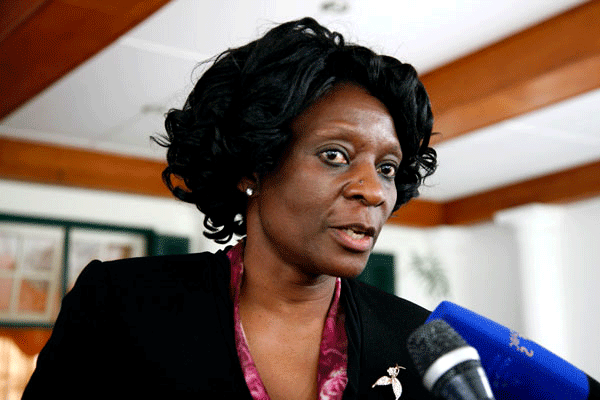
ZIMBABWE Electoral Commission chairperson, Rita Makarau has queried the jurisdiction of the High Court on electoral disputes and matters, arguing that the law provides that the Electoral Court could hear them.
BY RICHARD CHIDZA

In her response to an application by two jailed MDC-T activists Yvonne Musarurwa and Tungamirai Madzokere, who are demanding their right to vote, Makarau also raises issues around the legal establishment of polling stations at prisons.
“An inquiry into the jurisdiction of this honourable court to hear and determine the present application is, in my respectful view, one of the legal questions arising in this matter that requires exploration by this honourable court,” Makarau argued.
Musarurwa and Madzokere are serving 20-year jail terms for the murder of police Inspector Petros Mutedza in Glen View in 2011. The two now want to be accorded their right to vote from their prison cells.
Makarau’s response is supported by Justice ministry permanent secretary, Virginia Mabhiza, who argues that the Electoral Act places certain requirements before a polling station can be established.
“Section 51(1)a provides that every polling station shall be located in a place that is readily accessible to the public, including persons with physical disabilities. Section 51(1)b(b) in turn provides that no polling station shall be located in a police station, cantonment area or other place where police officers or members of the defence forces are permanently stationed,” Mabhiza said in her affidavit.
“Do persons that are incarcerated at the time an election is conducted in the constituencies that they resided in immediately prior to their imprisonment qualify for registration as voters and the residence requirement of the Electoral Act? Is a prison facility disqualified from eligibility to house or host a polling station in terms of section 51(1)b(b) of the Electoral Act?” the State argues.
- Chamisa under fire over US$120K donation
- Mavhunga puts DeMbare into Chibuku quarterfinals
- Pension funds bet on Cabora Bassa oilfields
- Councils defy govt fire tender directive
Keep Reading
Makarau and Mabhiza also asked whether a prison facility can be delimited as a stand-alone constituency, and if it is established that one can be lawfully erected at a prison facility, “can that polling station cater to all persons incarcerated at the prison facility who are eligible to vote in light of the proviso to section 51(2) of the Electoral Act?”
Makarau said the issue before the court “may be one that requires a legislative solution and not a judicial one”.











